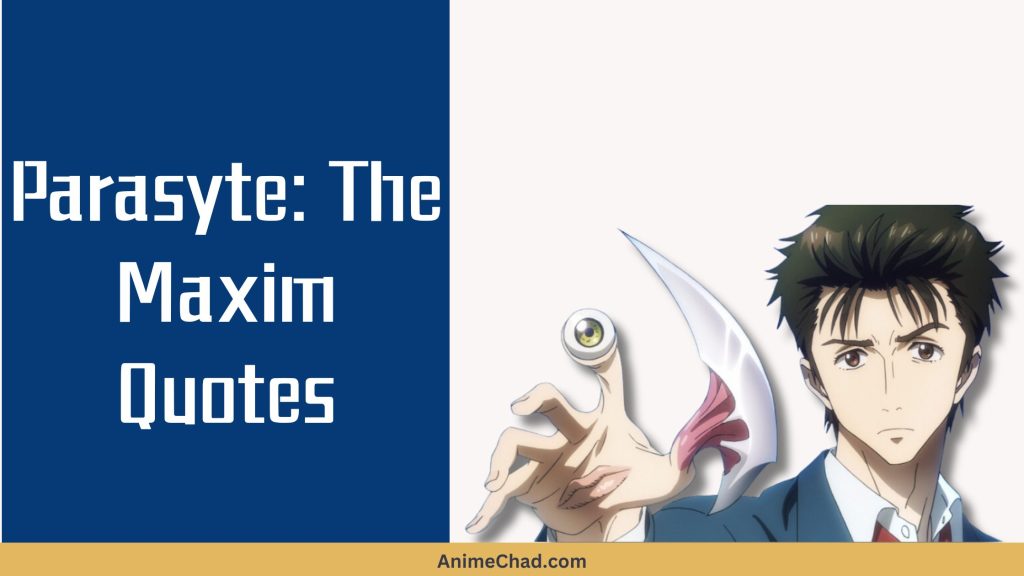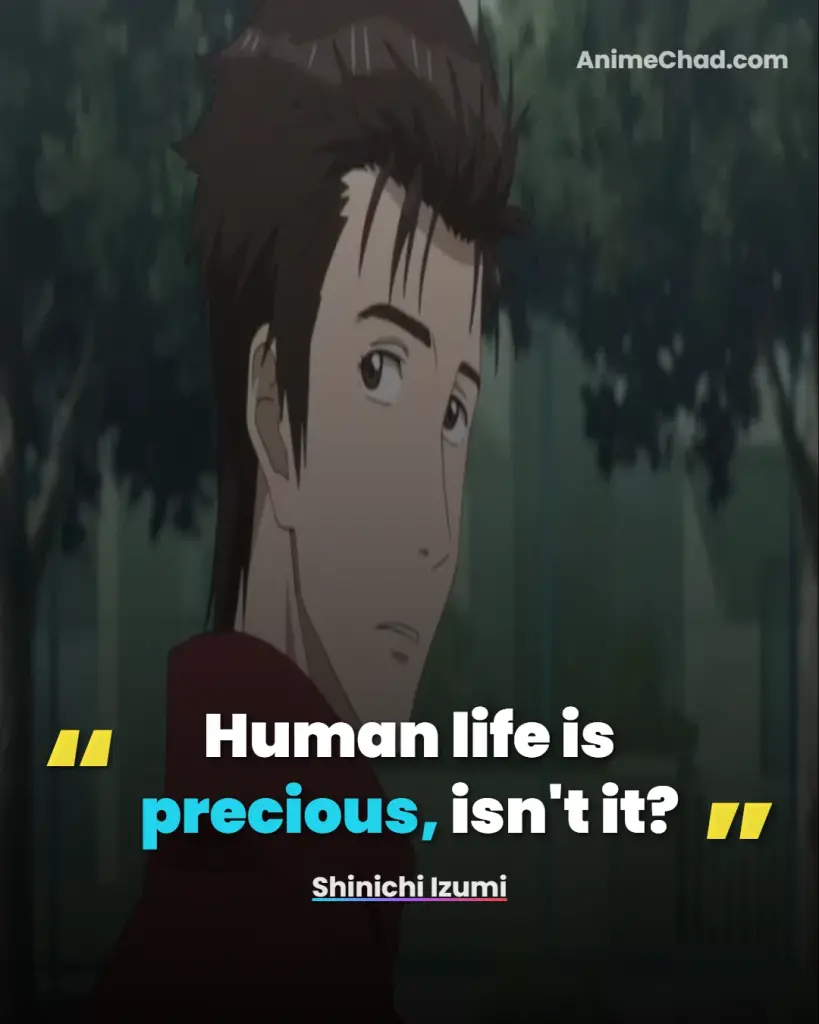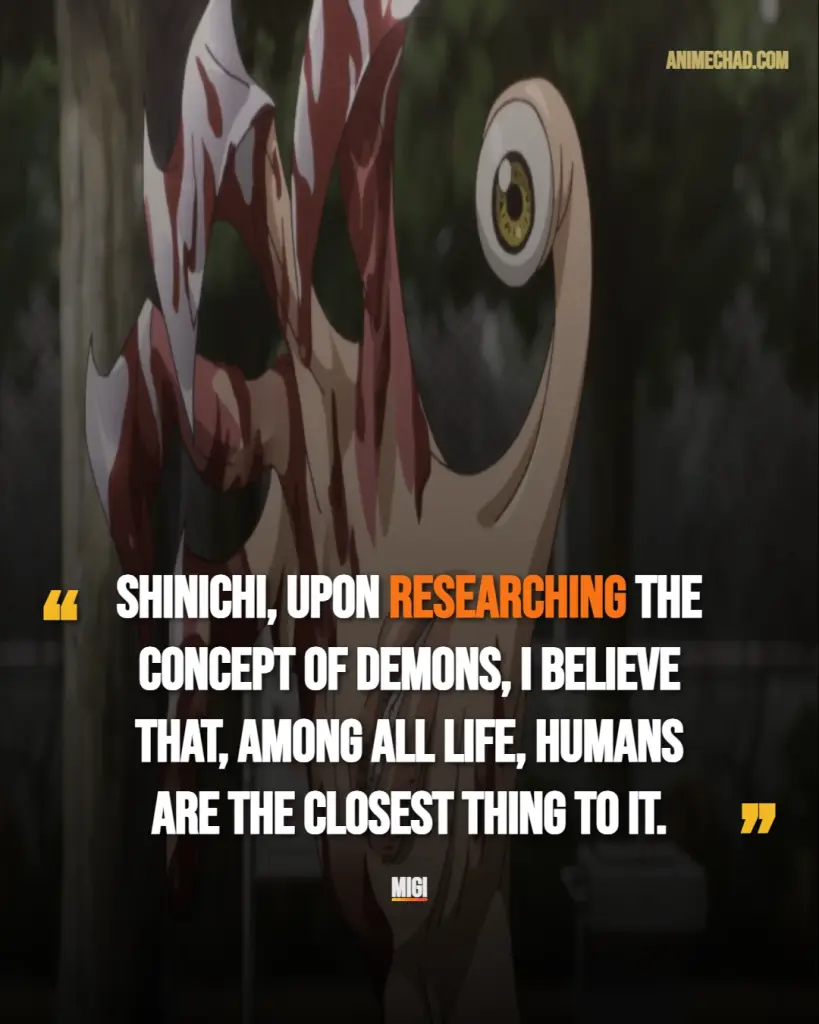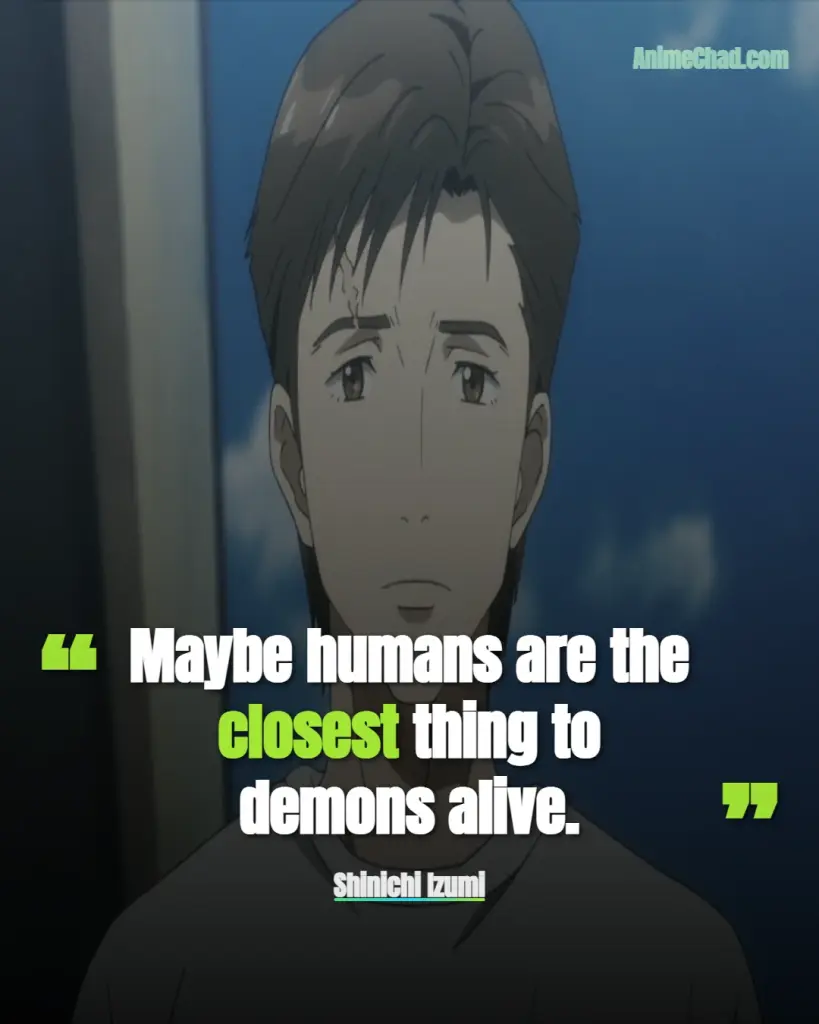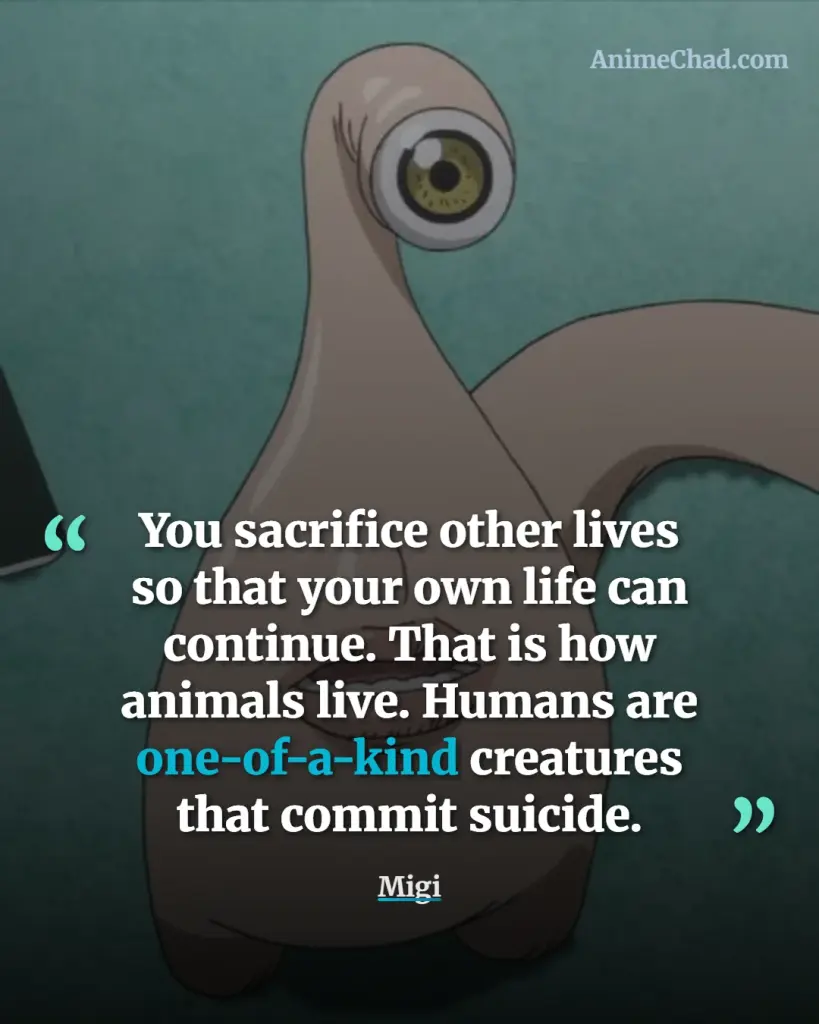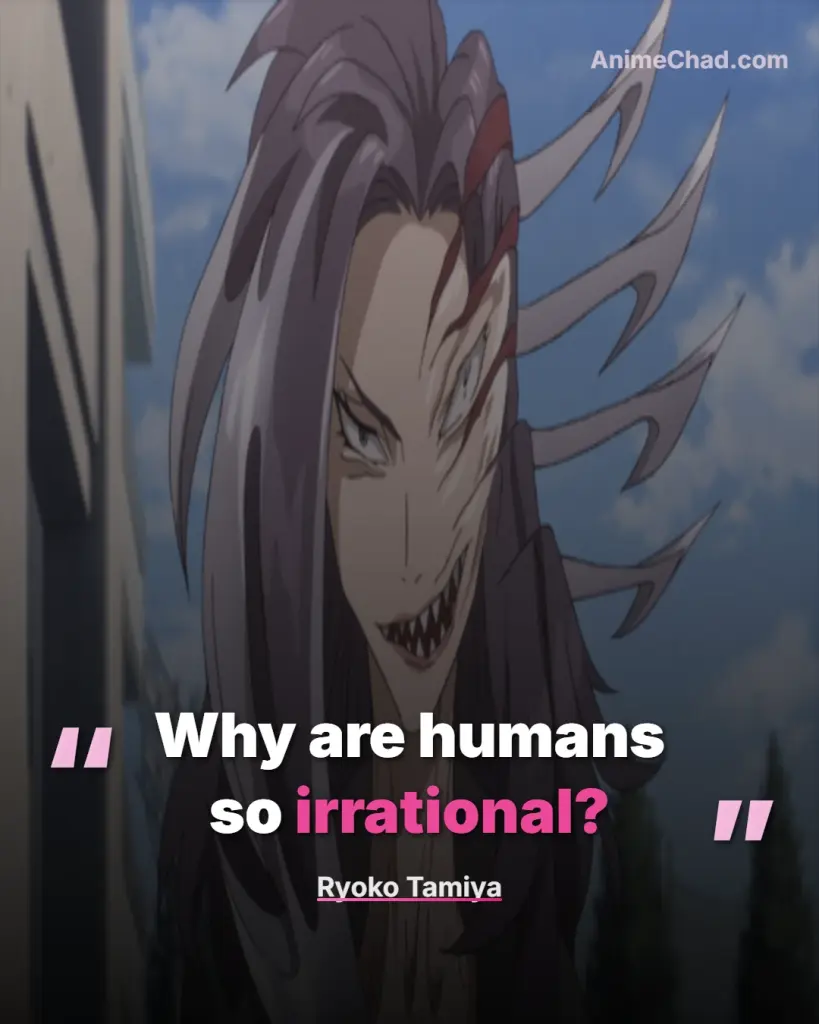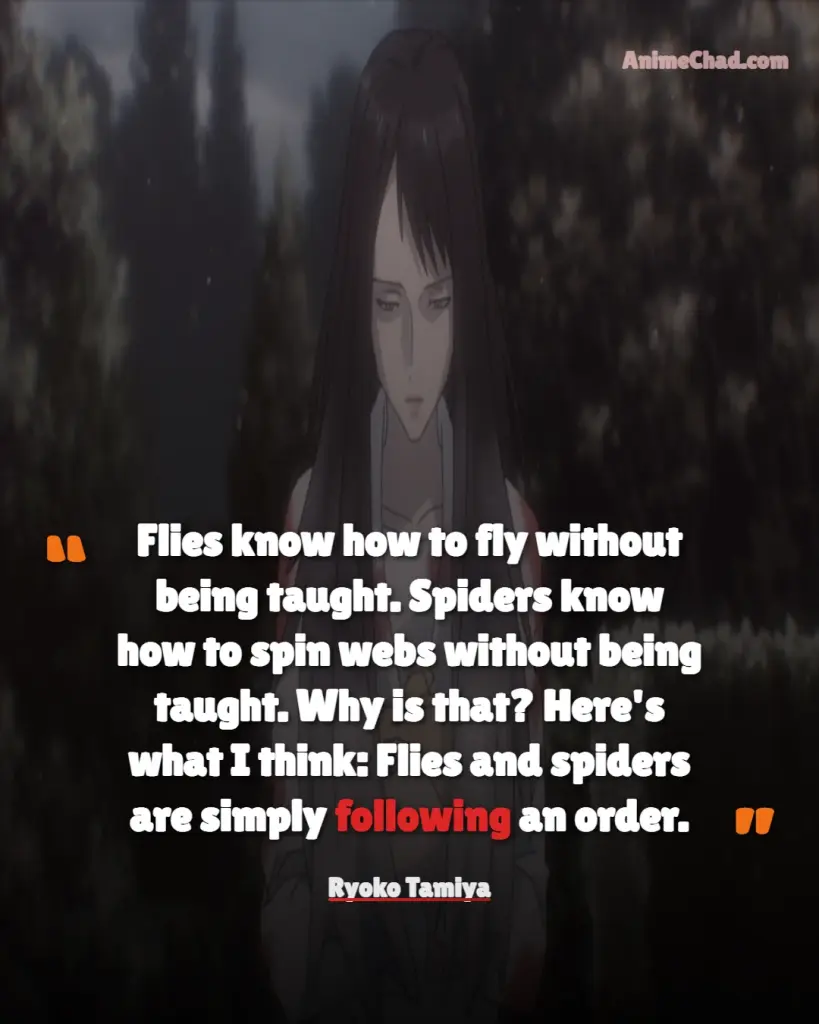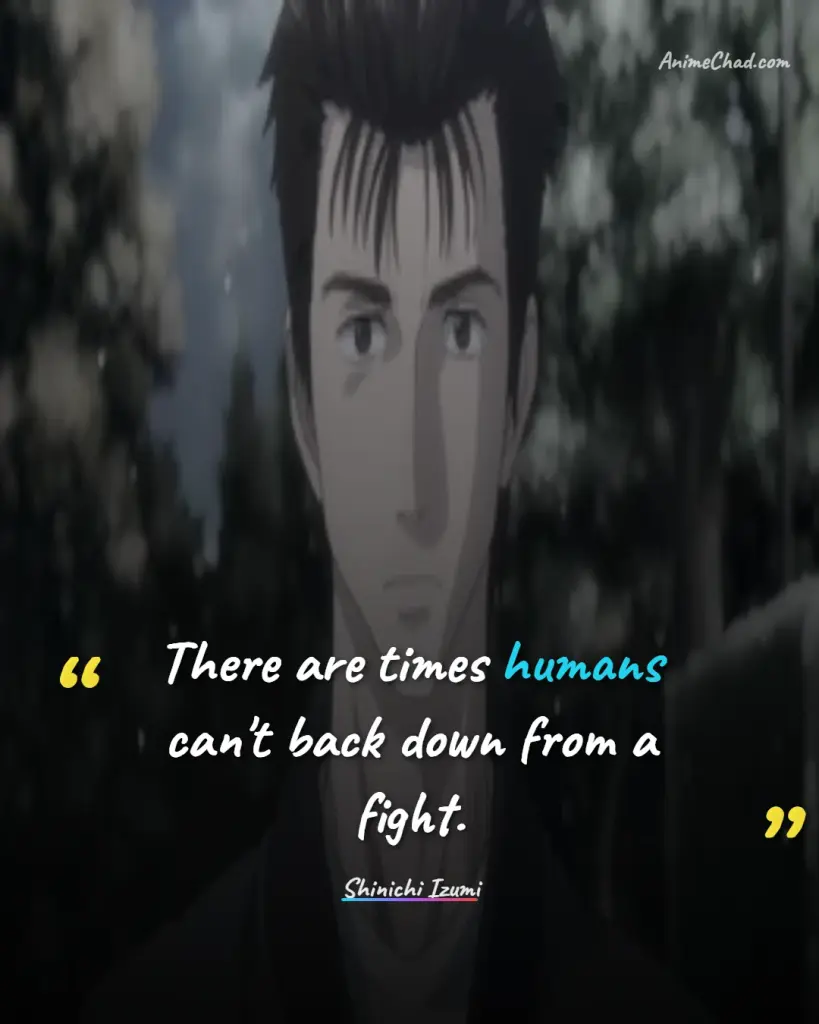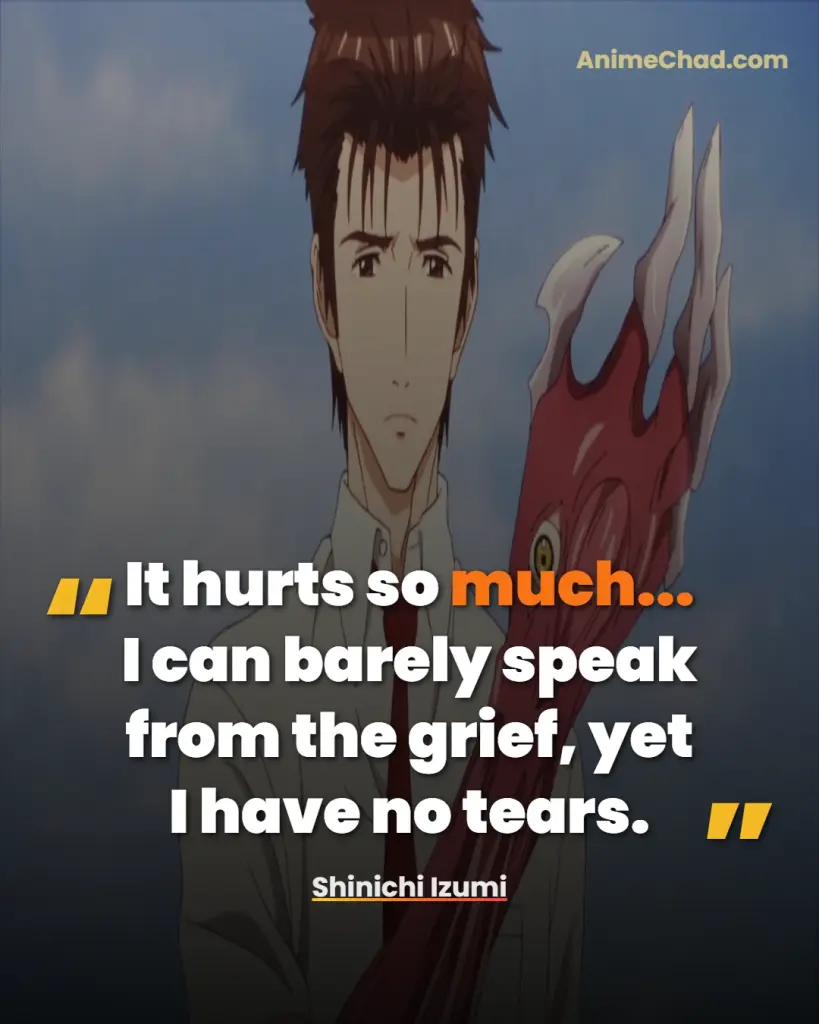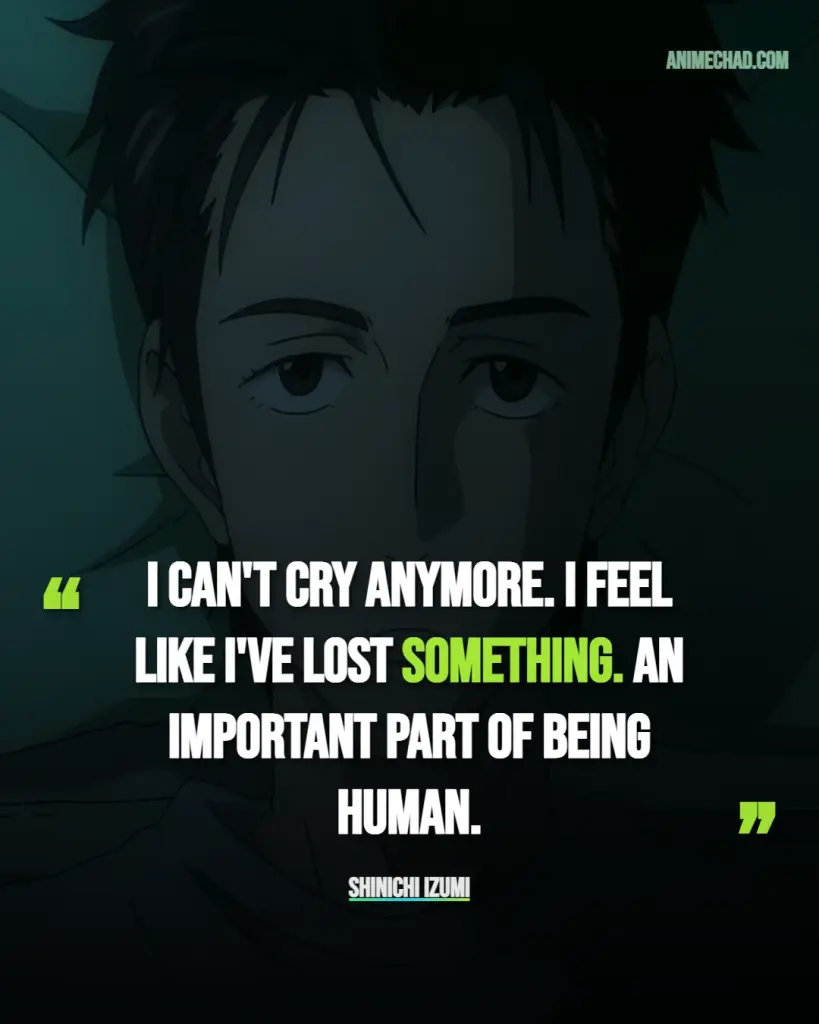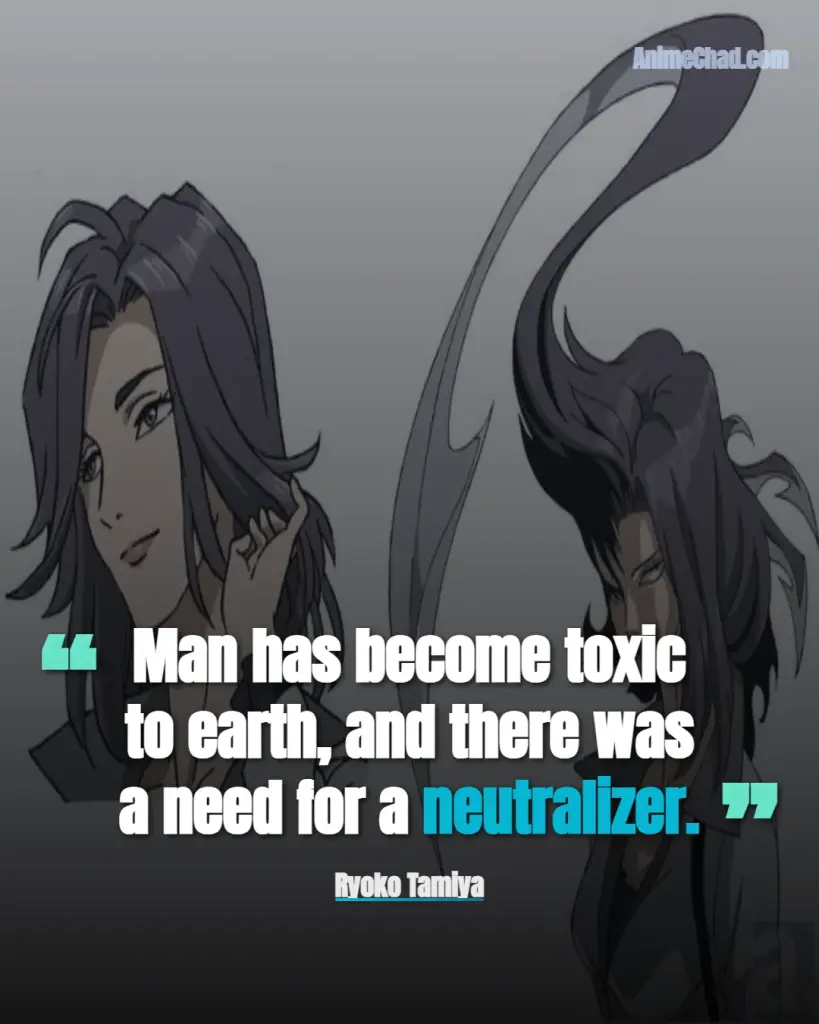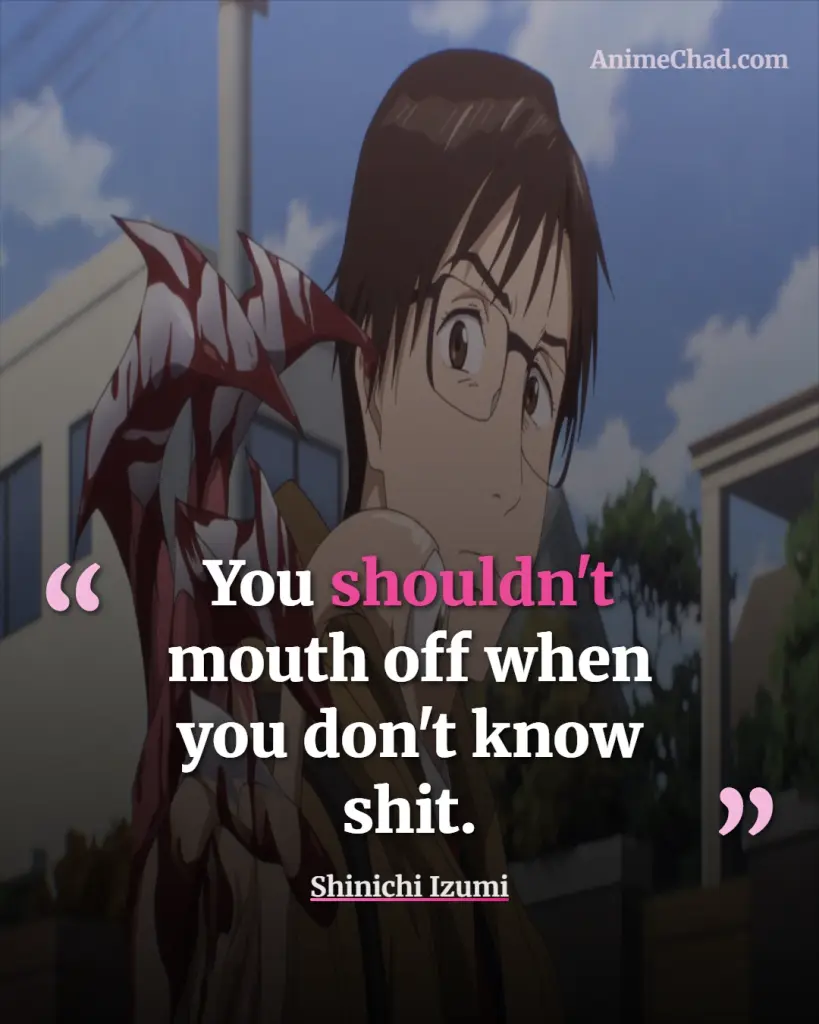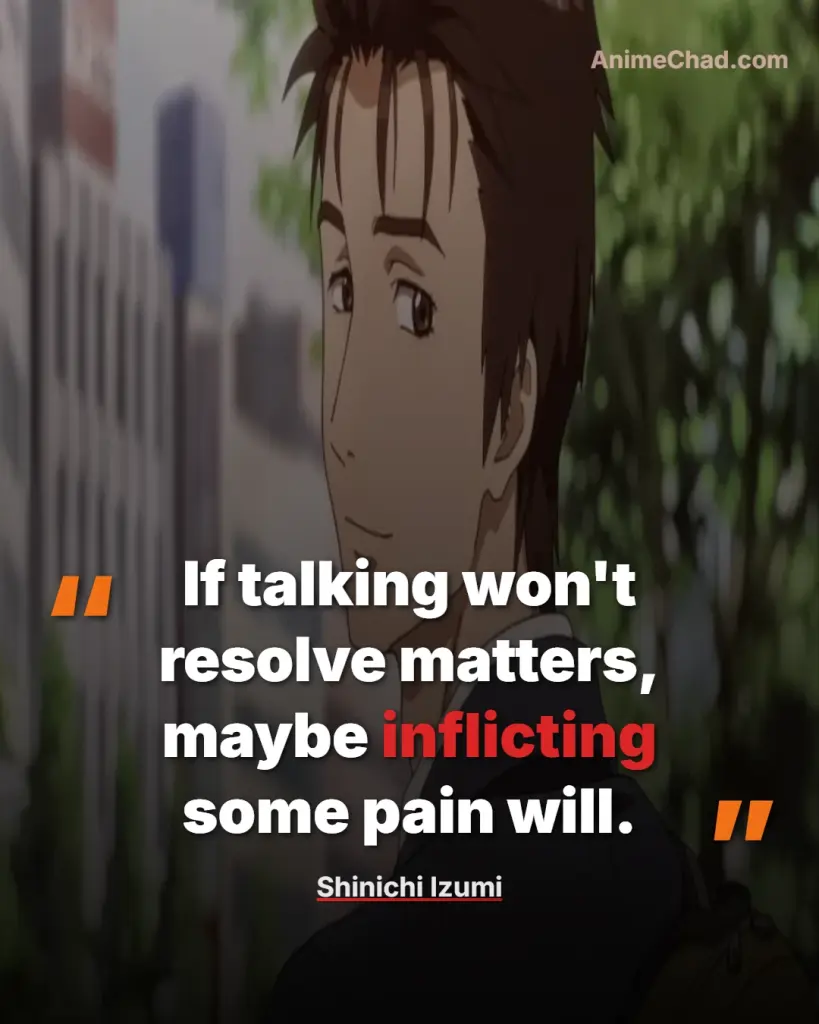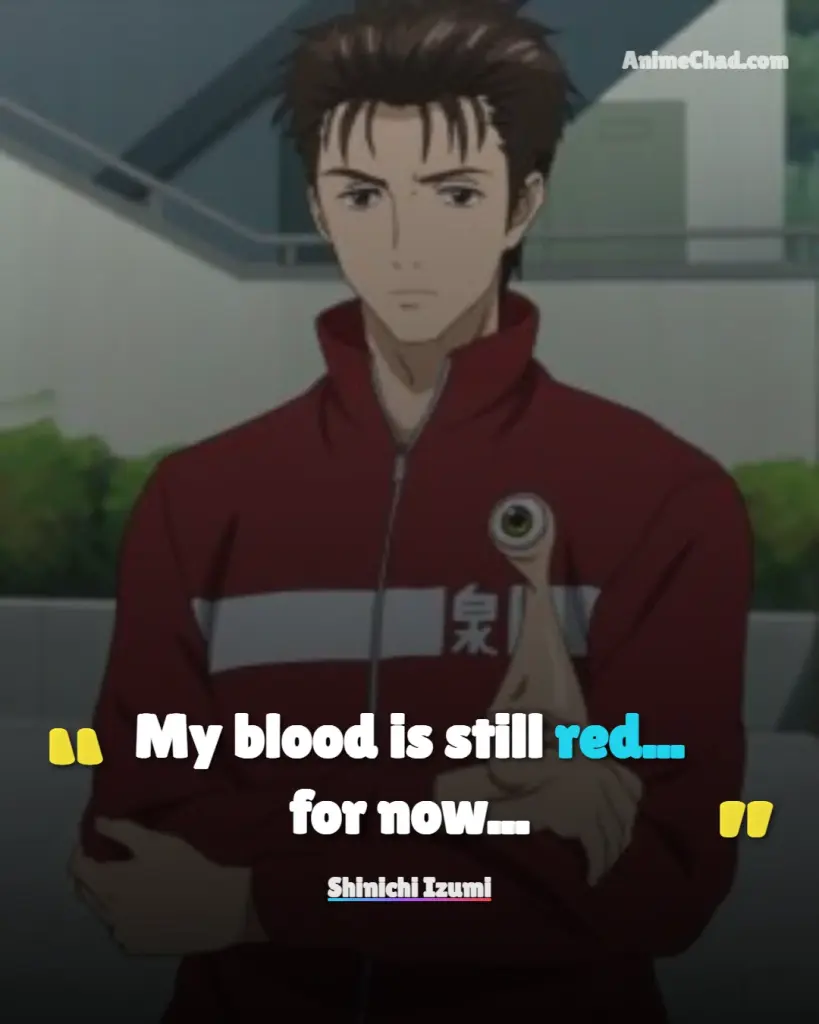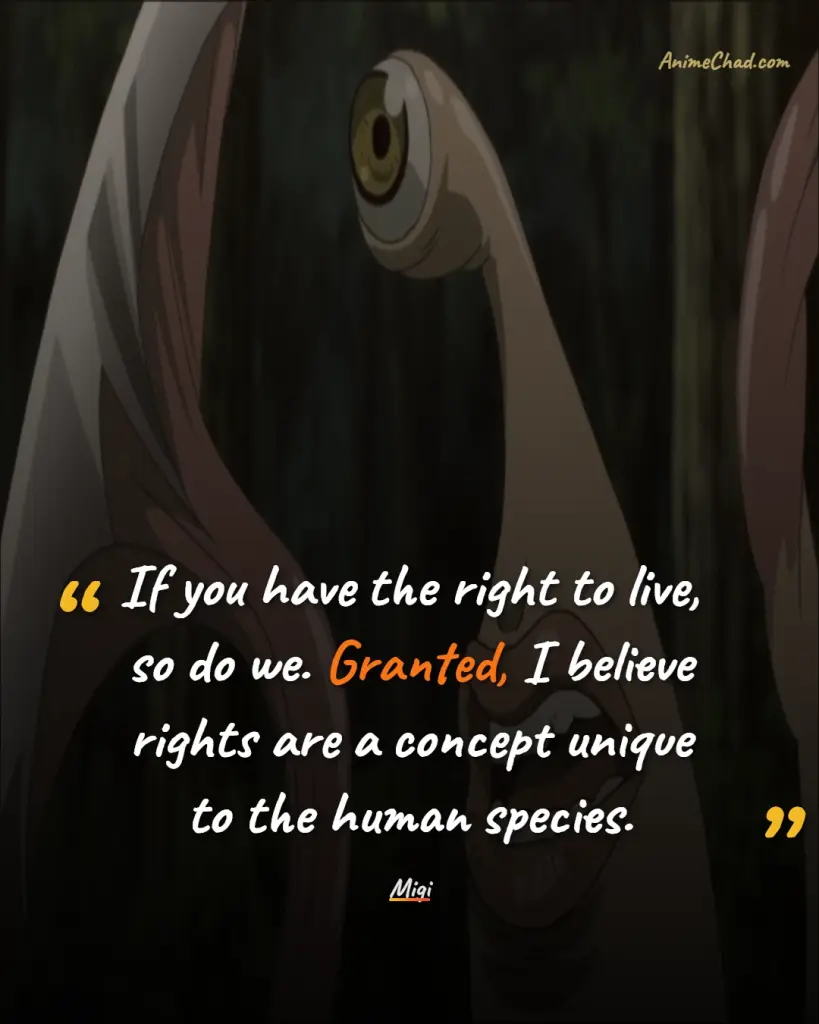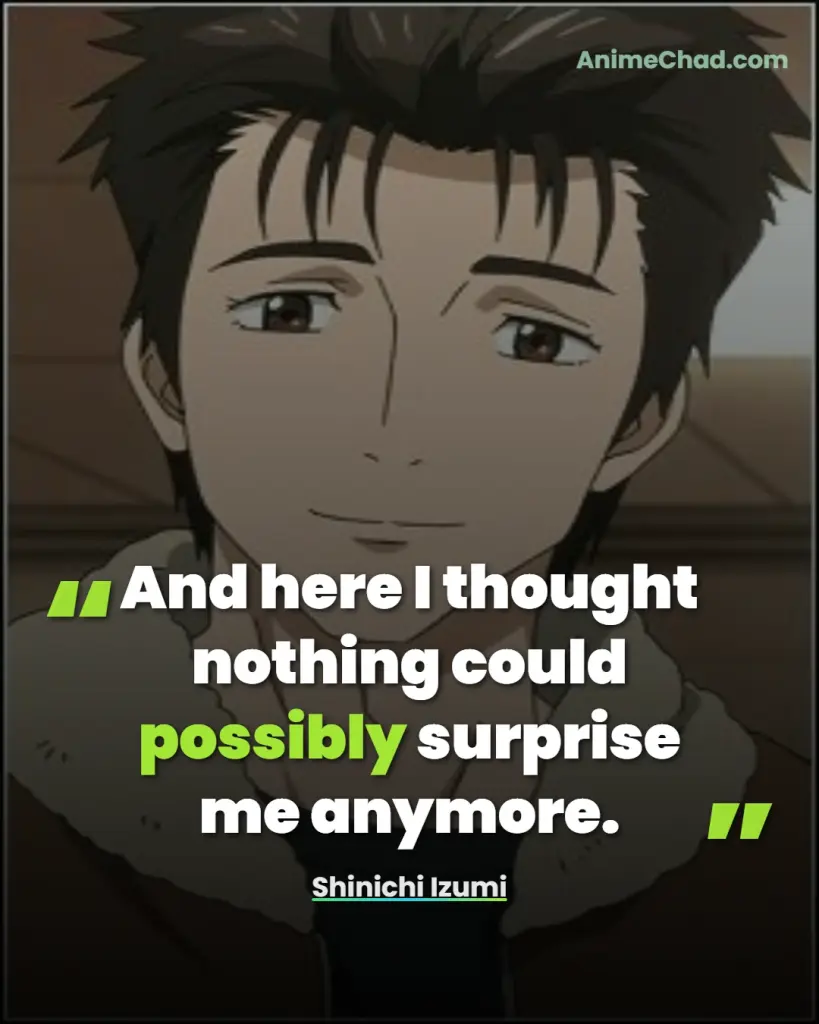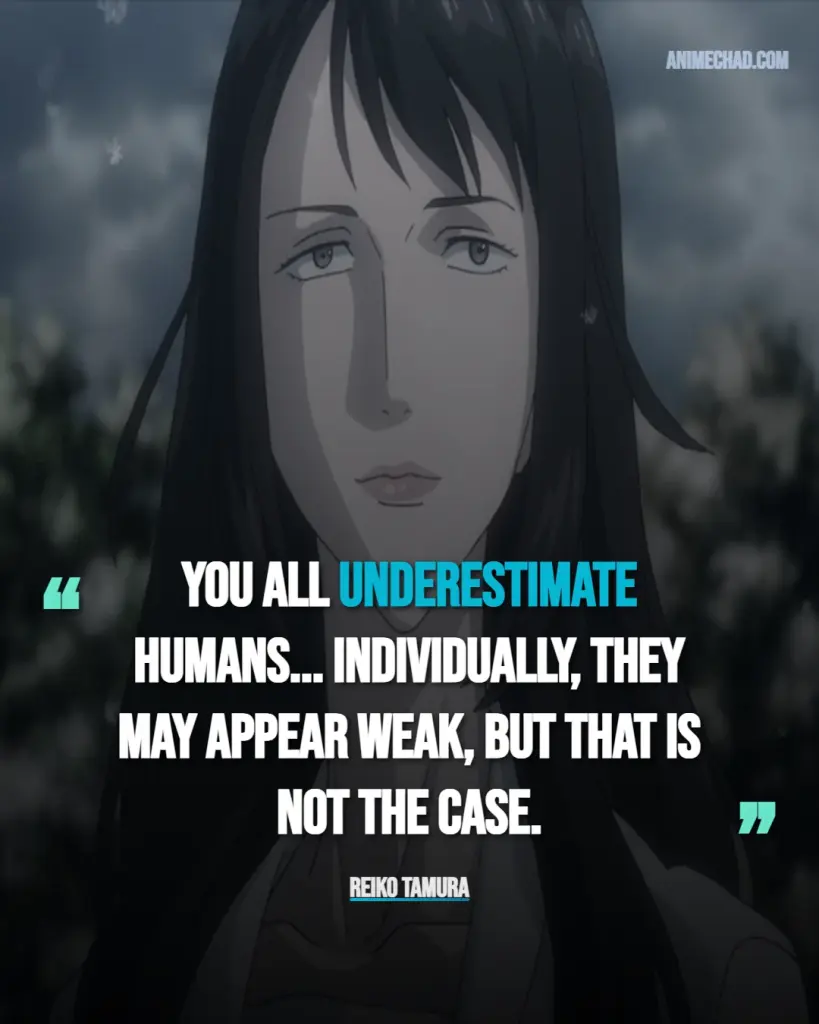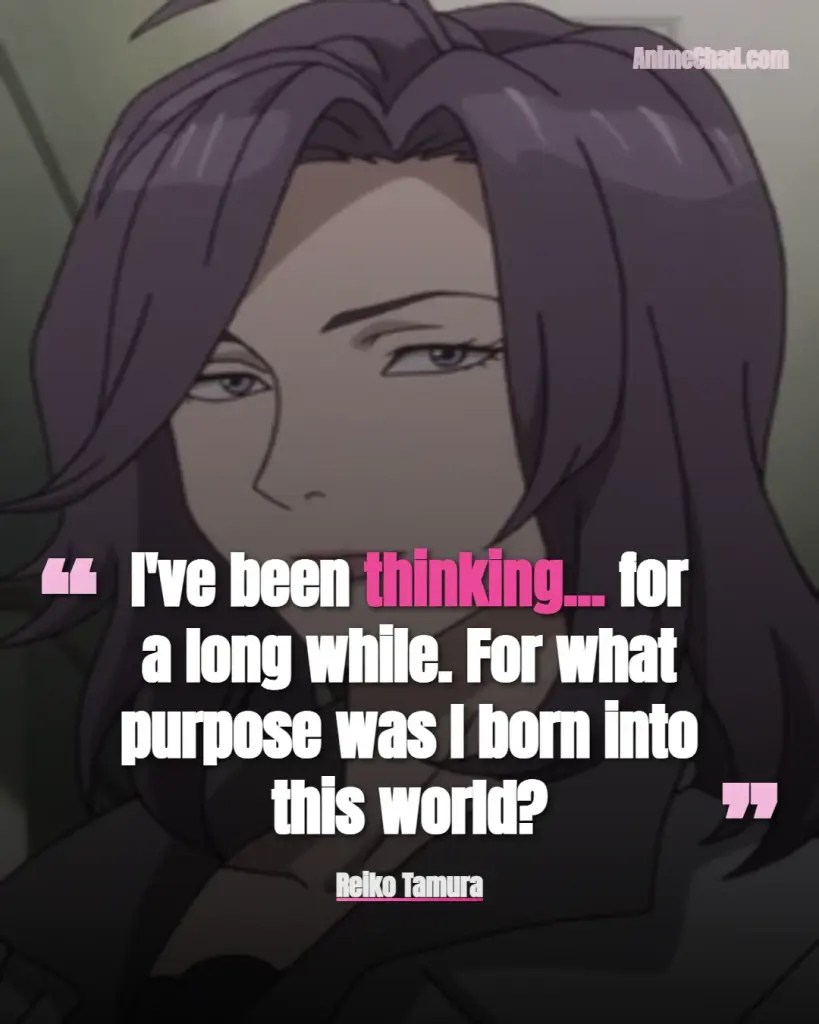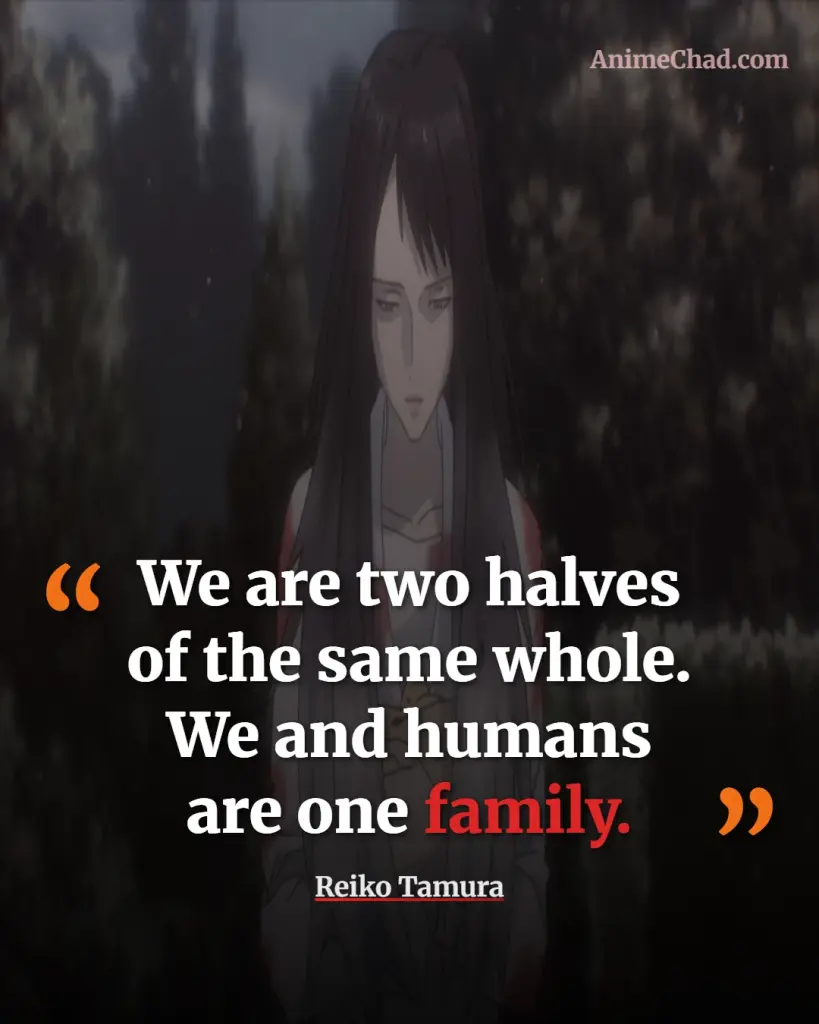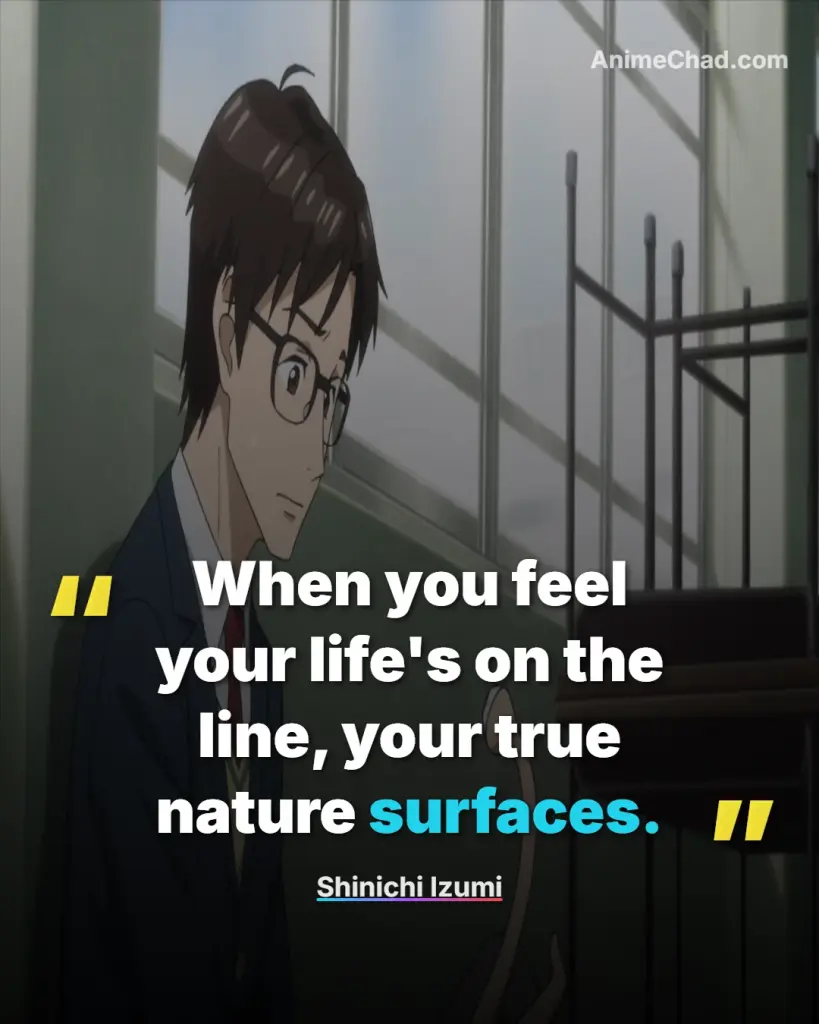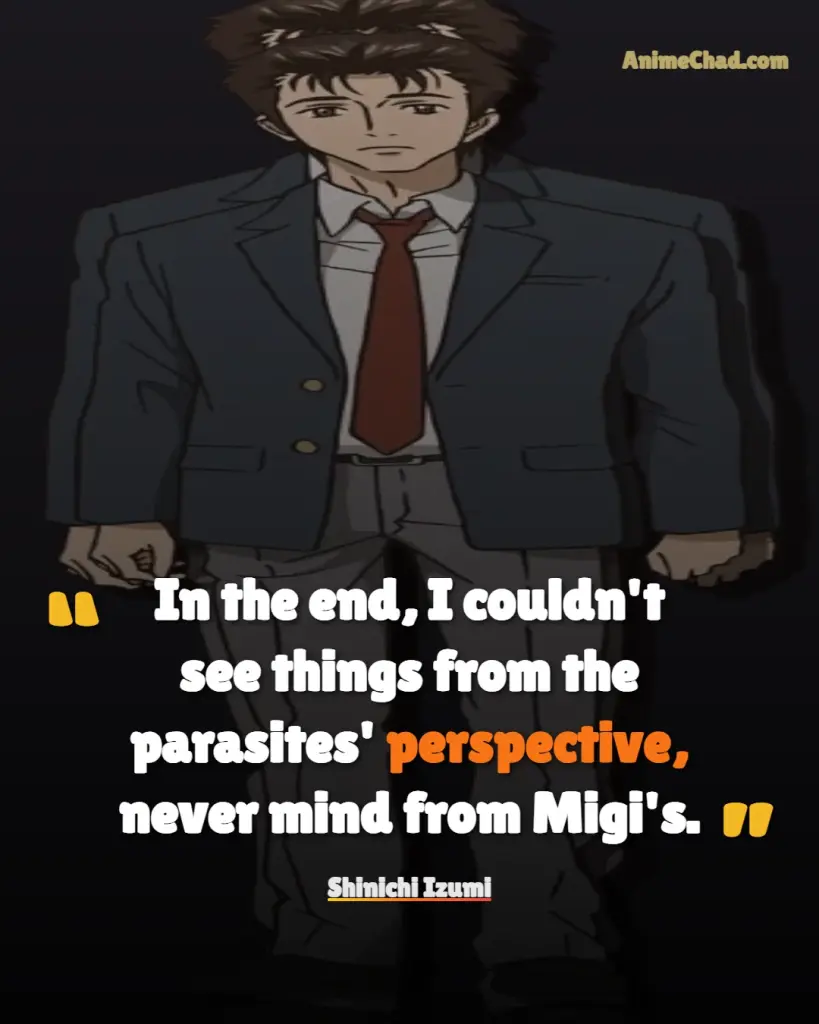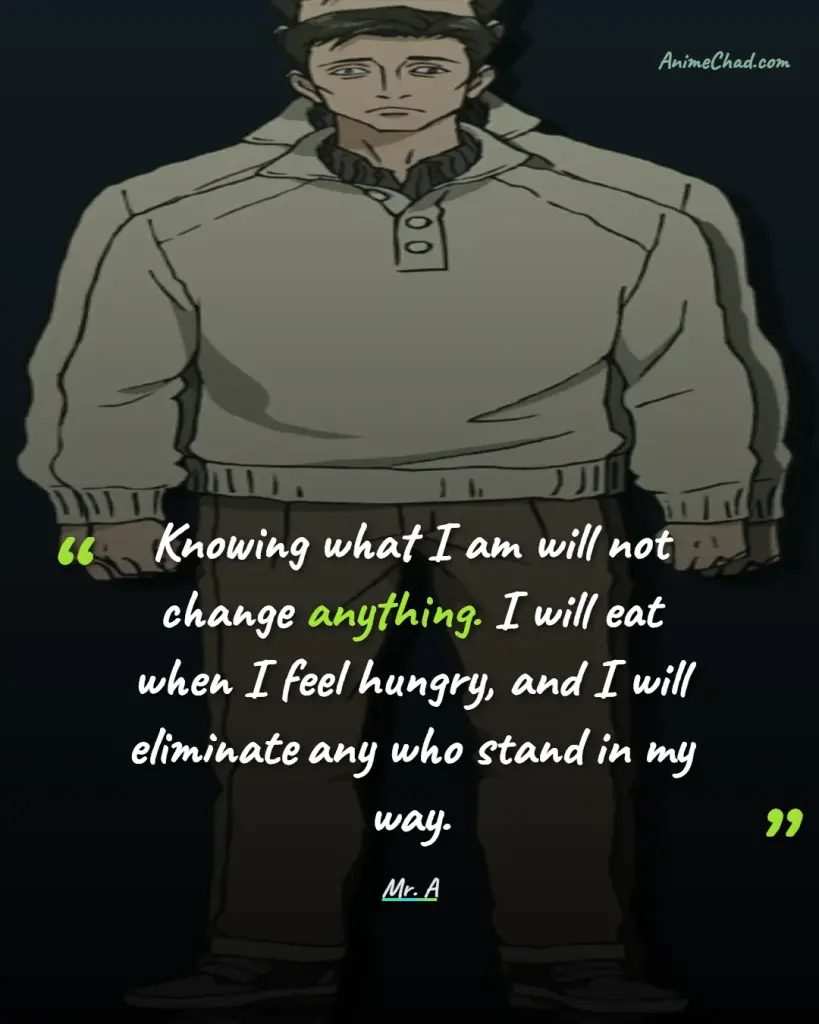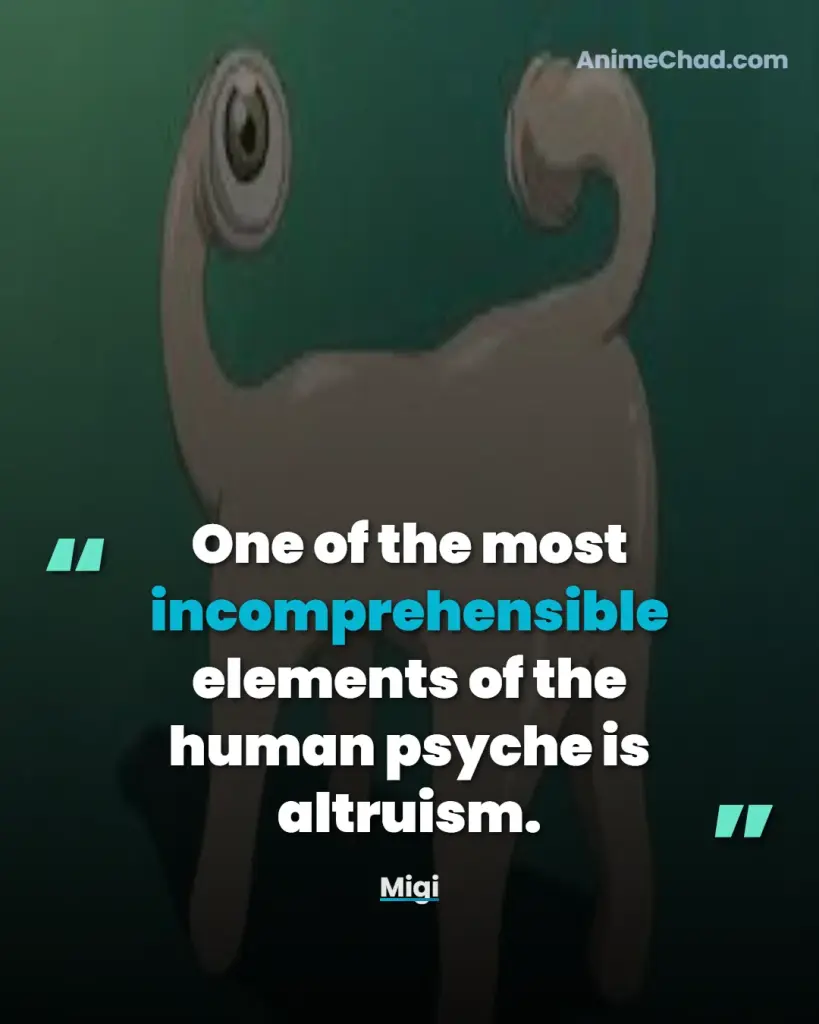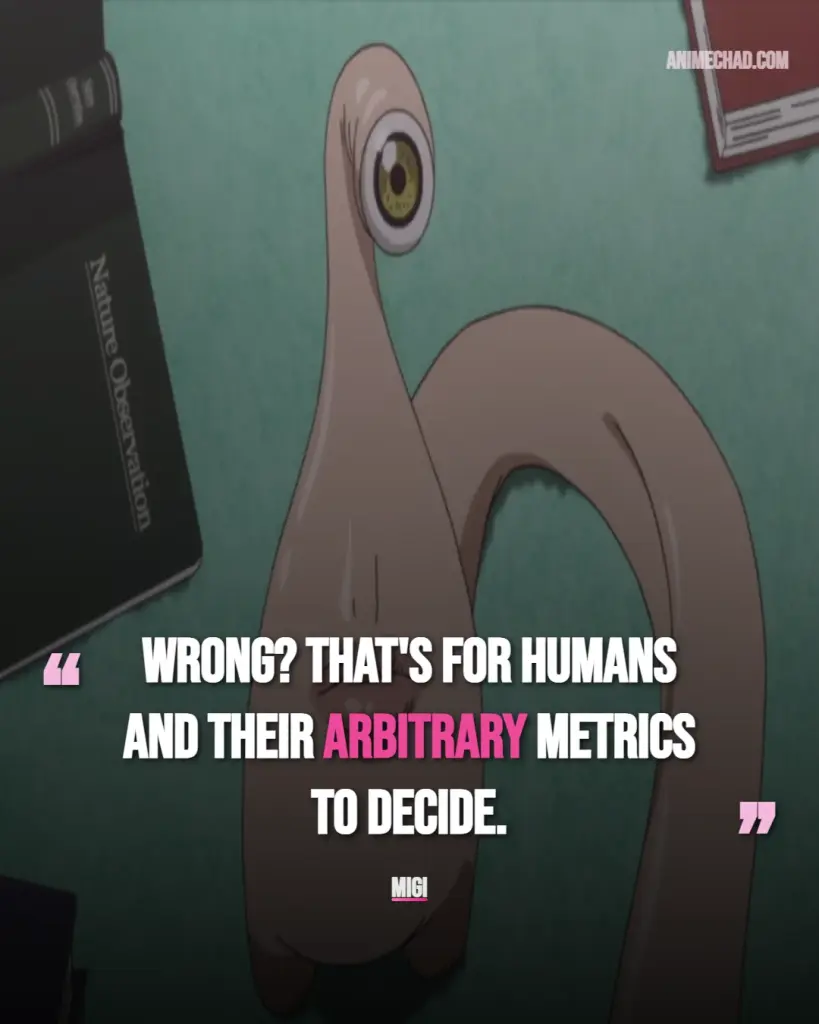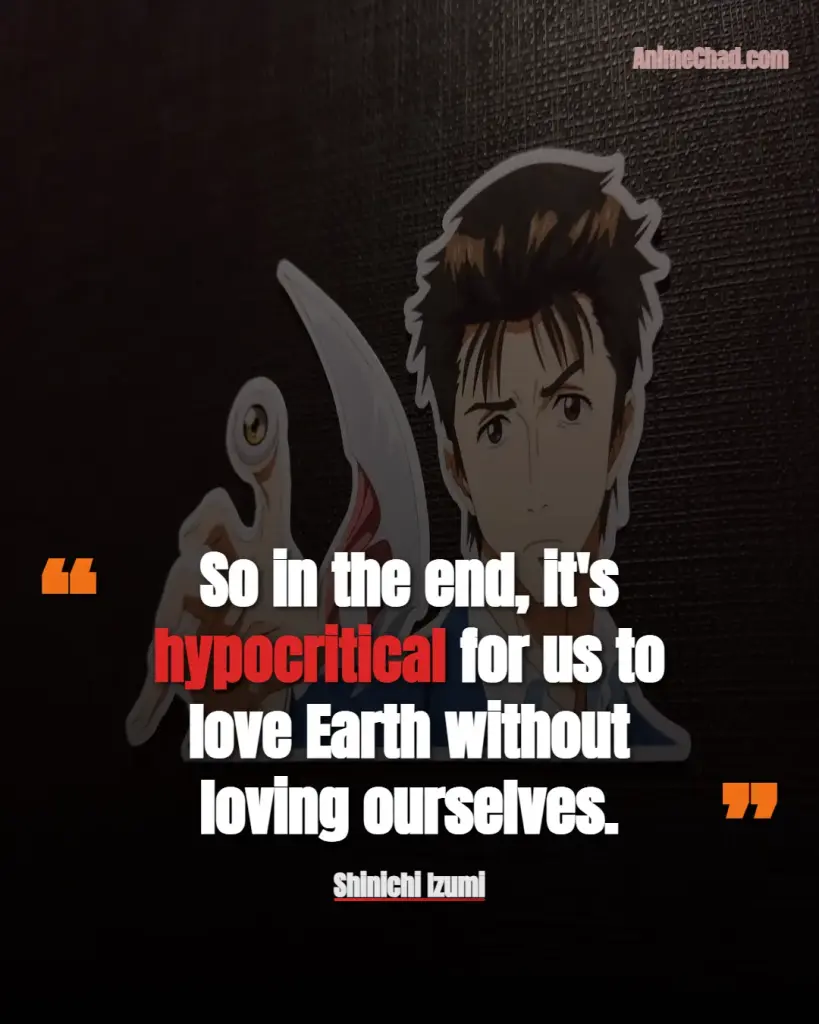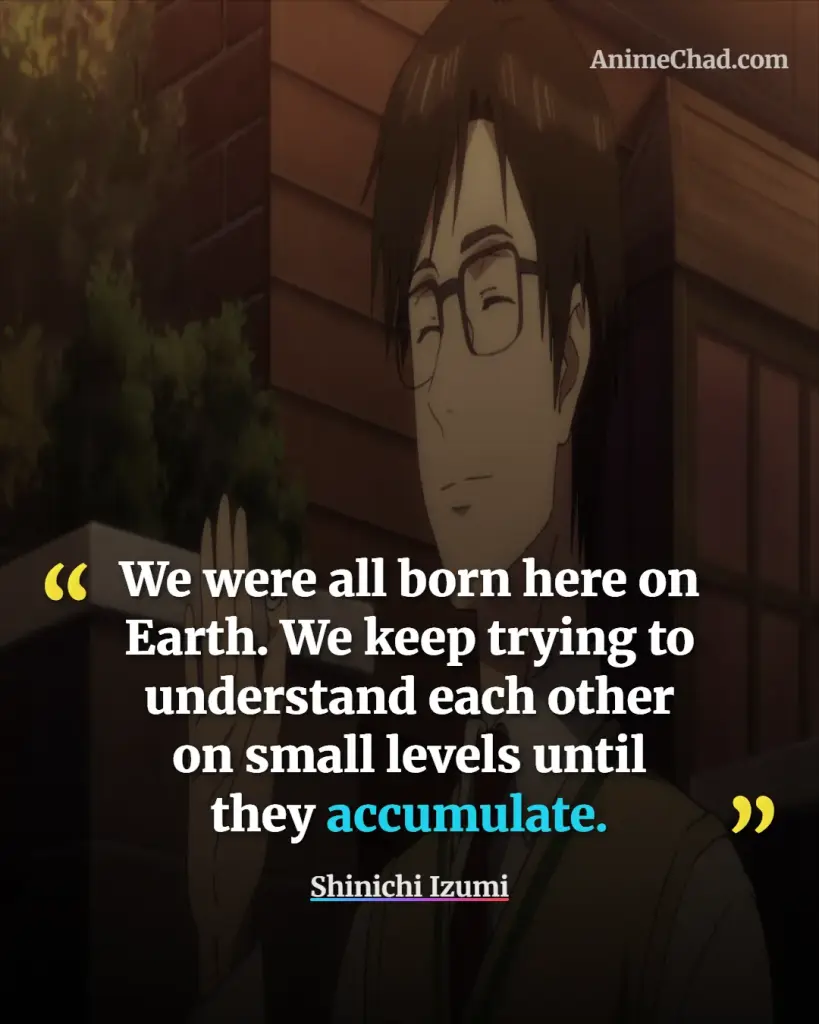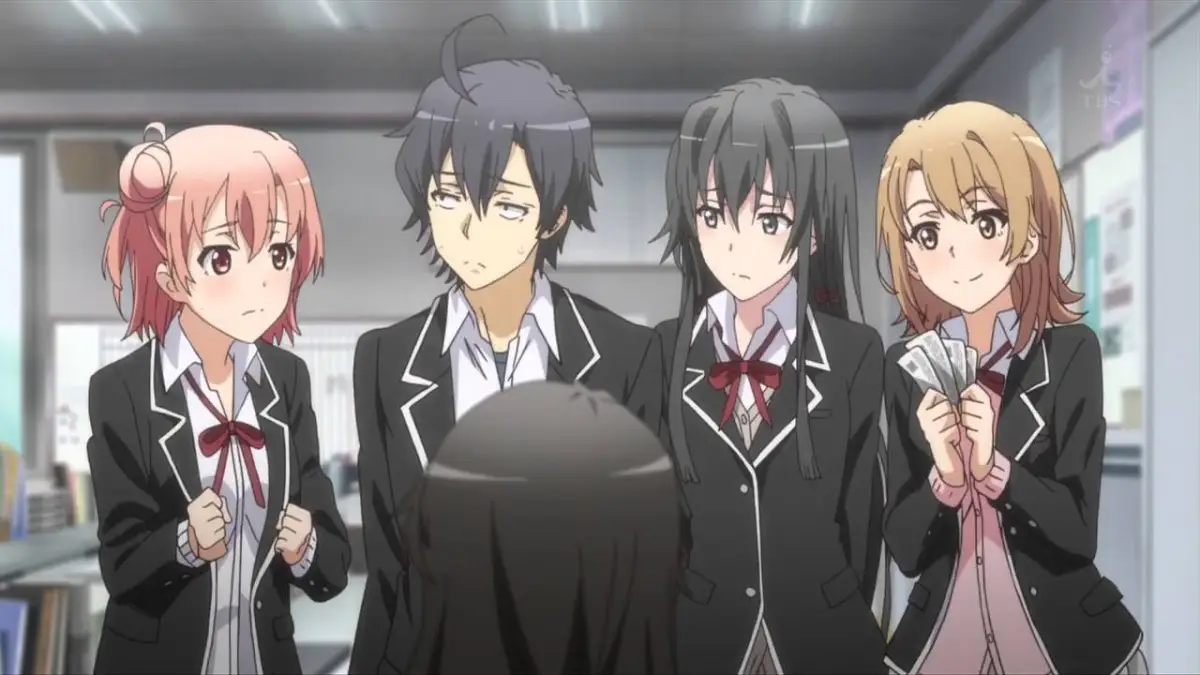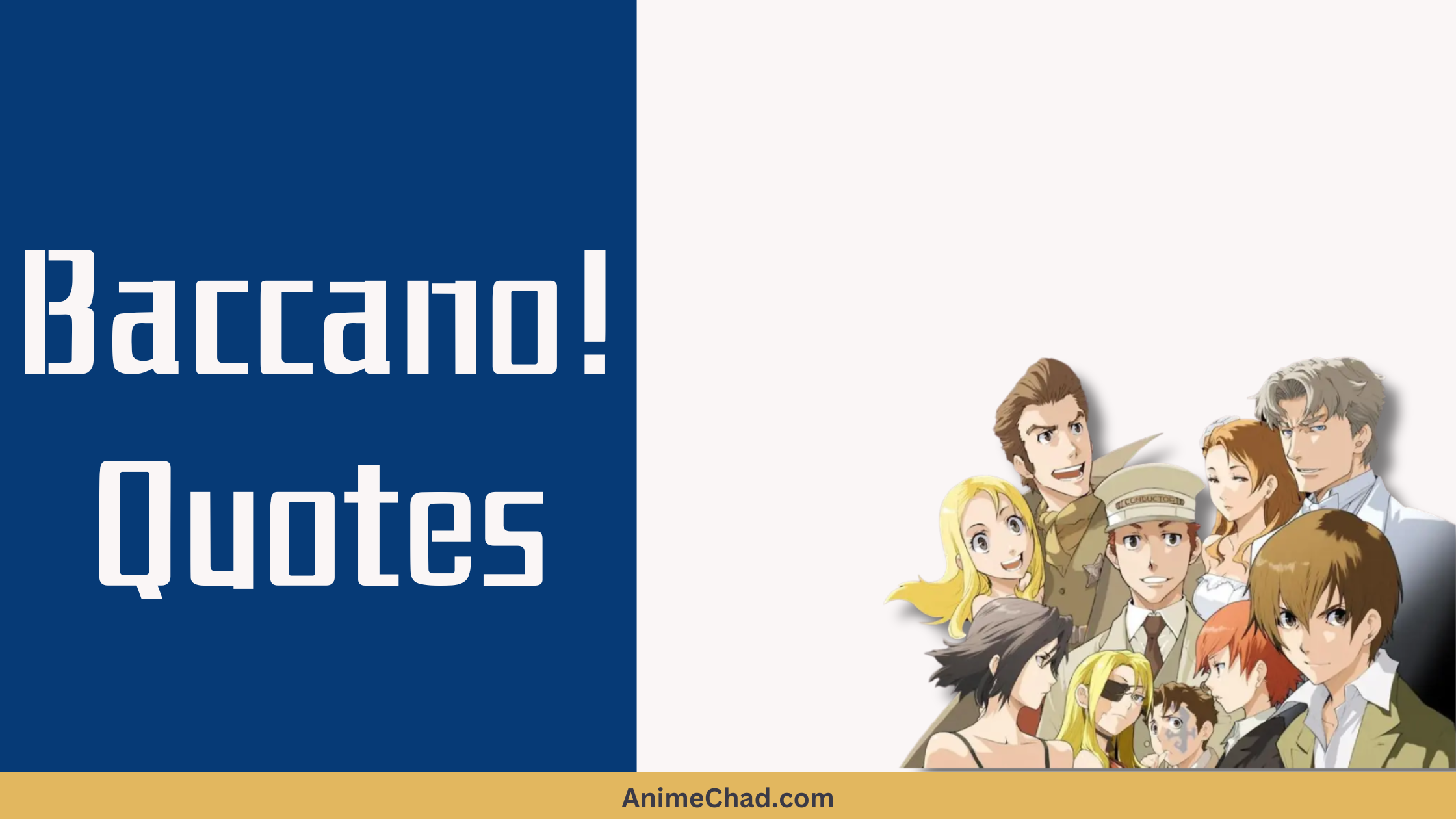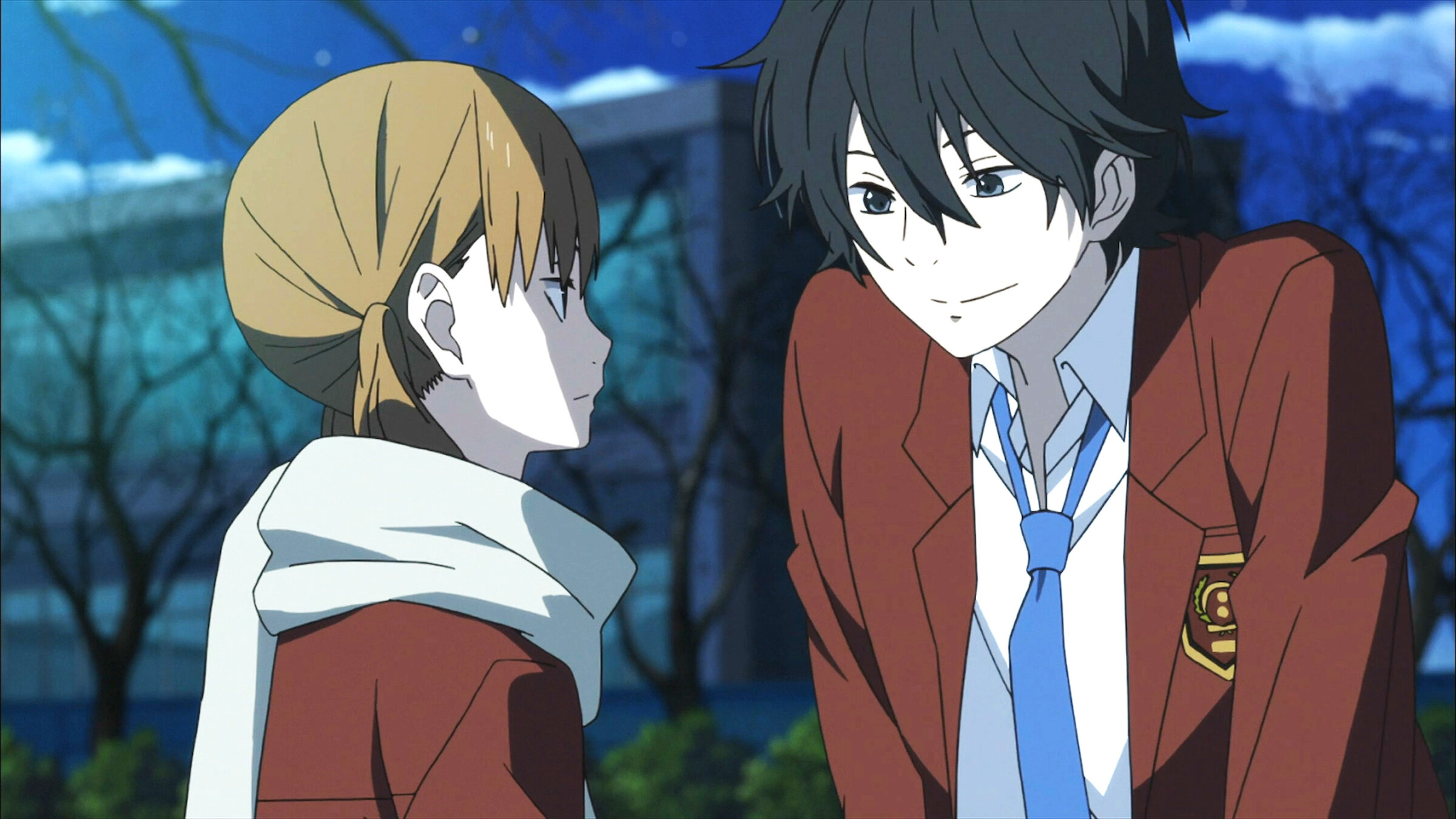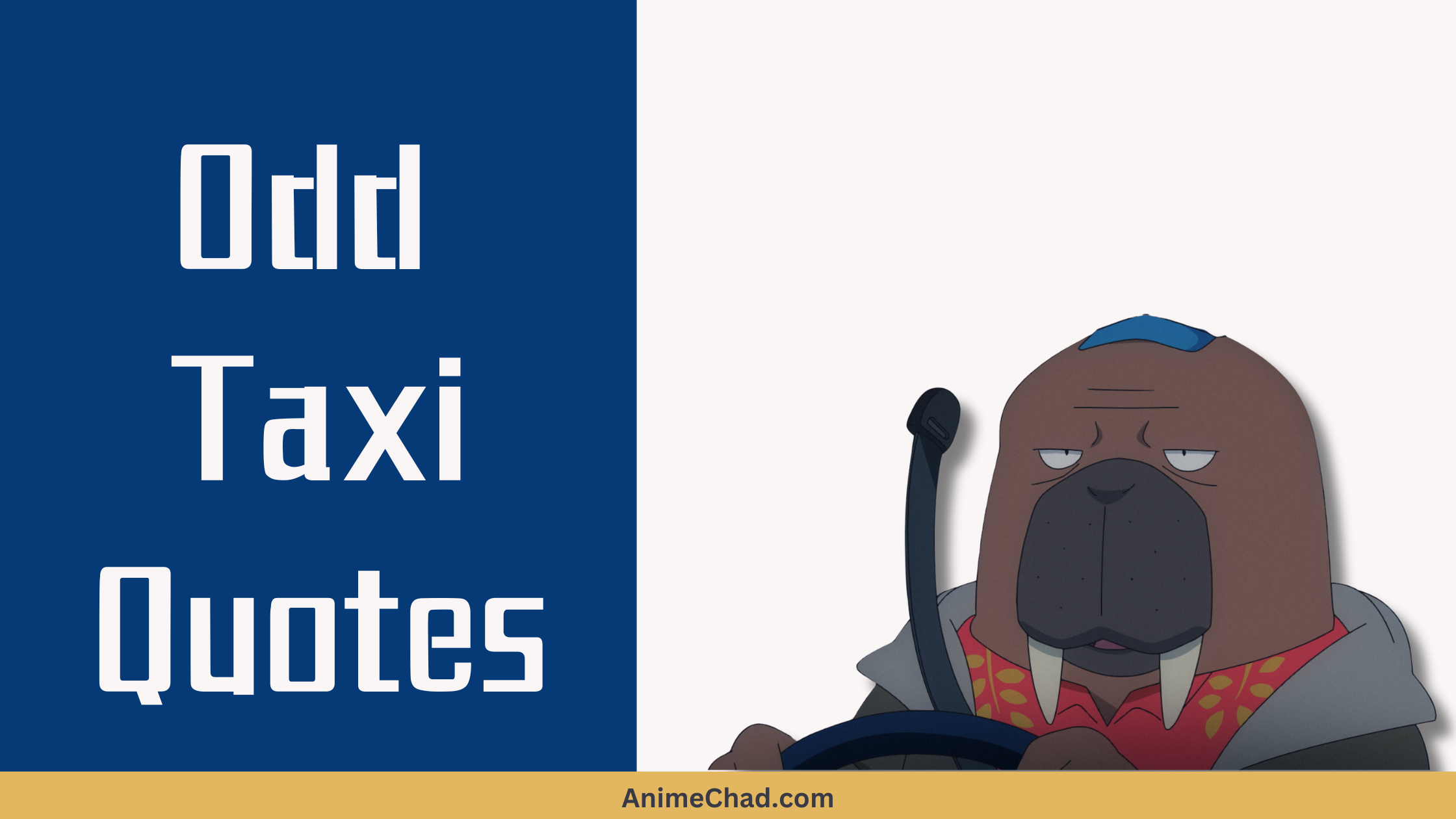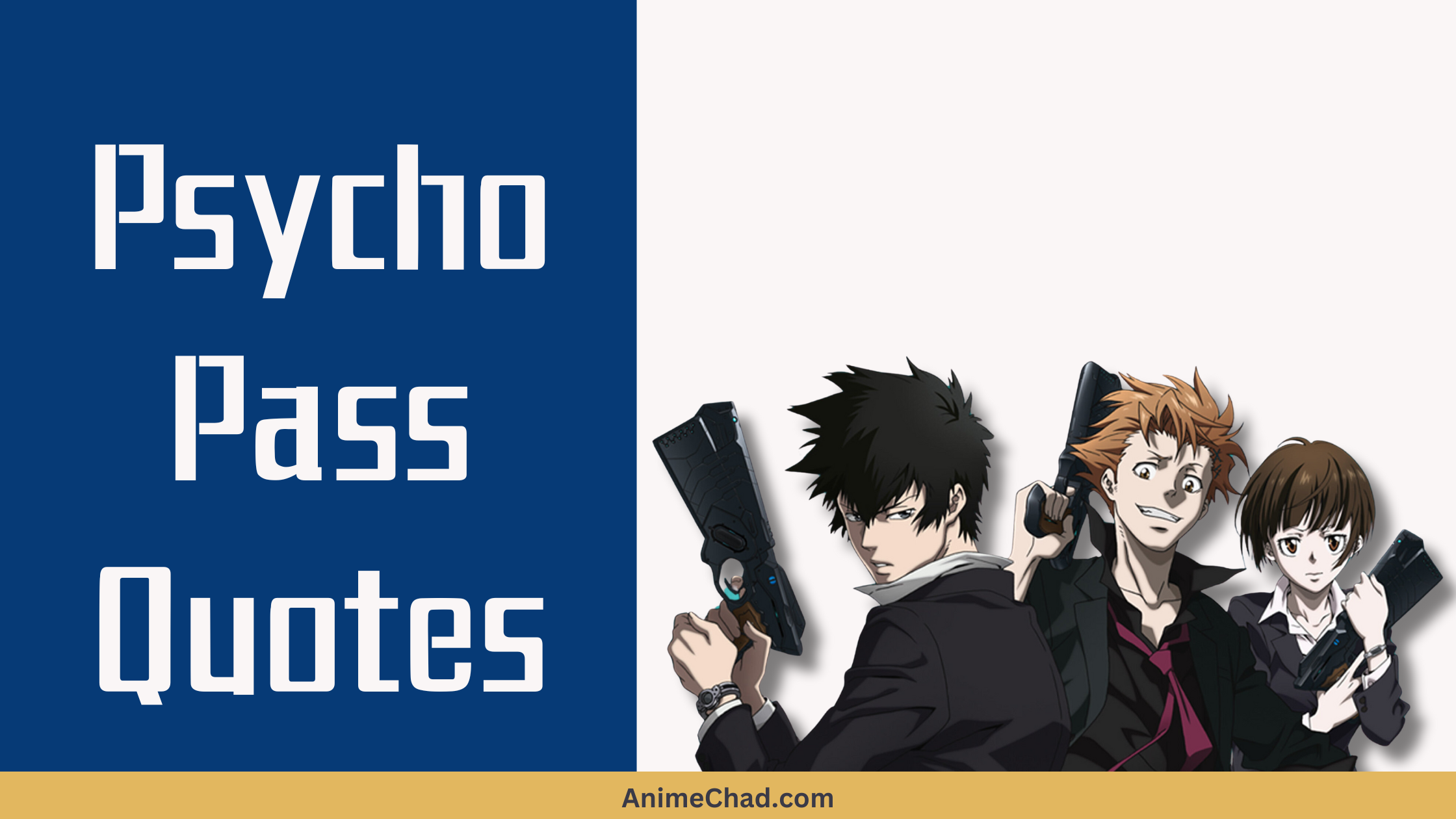Parasyte: The Maxim follows Shinichi Izumi, a high school student whose right hand is taken over by a sentient parasite named Migi, forcing them into an uneasy alliance against other deadly parasites invading humanity. The series delves into profound themes of identity, coexistence between species, the essence of humanity, and environmental balance amid survival instincts.
This curated collection of 25 quotes highlights pivotal moments that underscore character growth, emotional depth, and these overarching ideas, drawing from key episodes across the anime’s arcs.
Human life is precious, isn’t it?
Episode 2 (The Devil in the Flesh)
Shinichi Izumi
Shinichi’s early realization of life’s value during a parasite attack, marking his shift from naivety to valuing humanity’s fragility.
Shinichi, upon researching the concept of demons, I believe that, among all life, humans are the closest thing to it.
Episode 2 (The Devil in the Flesh)
Migi
Migi’s analytical view challenges human superiority, sparking Shinichi’s introspection on morality and coexistence in a peaceful reflective moment.
Maybe humans are the closest thing to demons alive.
Episode 2 (The Devil in the Flesh)
Shinichi Izumi
Echoing Migi’s insight, this highlights Shinichi’s growing doubt about human nature, tying into themes of self-perception and ethical hypocrisy.
You sacrifice other lives so that your own life can continue. That is how animals live. Humans are one-of-a-kind creatures that commit suicide.
Episode 3 (Feast)
Migi
During a calm discussion, Migi exposes human contradictions, emphasizing survival themes and pushing Shinichi toward philosophical maturity.
Why are humans so irrational?
Episode 3 (Feast)
Ryoko Tamiya
Ryoko’s curiosity in a tense encounter reveals parasites’ detachment, contrasting human emotions and advancing themes of interspecies understanding.
Flies know how to fly without being taught. Spiders know how to spin webs without being taught. Why is that? Here’s what I think: Flies and spiders are simply following an order.
Episode 3 (Feast)
Ryoko Tamiya
In a classroom setting, this explores instinct versus free will, deepening Ryoko’s character arc toward empathy for humans.
There are times humans can’t back down from a fight.
Episode 4 (Disheveled Hair)
Shinichi Izumi
Amid a battle, Shinichi’s resolve shows his hardening spirit, connecting to survival themes and his transformation from passive to proactive.
It hurts so much… I can barely speak from the grief, yet I have no tears.
Episode 5 (The Stranger)
Shinichi Izumi
After loss, this emotional low point illustrates Shinichi’s desensitization, highlighting themes of humanity’s emotional core being eroded.
I can’t cry anymore. I feel like I’ve lost something. An important part of being human.
Episode 5 (The Stranger)
Shinichi Izumi
This introspective moment reveals Shinichi’s identity crisis, tying into broader questions of what defines humanity amid parasitic influence.
Man has become toxic to earth, and there was a need for a neutralizer.
Episode 6 (The Sun Rises Again)
Ryoko Tamiya
In a philosophical exchange, this underscores environmental themes, showing Ryoko’s evolution from predator to thoughtful observer.
You shouldn’t mouth off when you don’t know shit.
Episode 7 (Dark Night’s Passing)
Shinichi Izumi
During a confrontation, Shinichi’s aggression marks his tougher persona, reflecting character growth through survival pressures.
If talking won’t resolve matters, maybe inflicting some pain will.
Episode 8 (Freezing Point)
Shinichi Izumi
In a battle scene, this shows Shinichi’s shift to violence, emphasizing themes of coexistence failing under existential threats.
My blood is still red… for now…
Episode 12 (Kokoro)
Shinichi Izumi
Post-trauma reflection highlights Shinichi’s fear of losing humanity, connecting to identity themes in a quiet, vulnerable arc.
If you have the right to live, so do we. Granted, I believe rights are a concept unique to the human species.
Episode 14 (The Selfish Gene)
Migi
In a strategic discussion, Migi asserts equality, advancing themes of mutual rights and Shinichi’s understanding of parasites.
And here I thought nothing could possibly surprise me anymore.
Episode 15 (Something Wicked This Way Comes)
Shinichi Izumi
Amid escalating threats, this wry comment shows Shinichi’s jaded development, tying into resilience and human adaptability.
You all underestimate humans… Individually, they may appear weak, but that is not the case.
Episode 16 (Happy Family)
Reiko Tamura
Reiko’s observation in a tense standoff reveals her growing respect for humanity, marking her profound character shift.
I’ve been thinking… for a long while. For what purpose was I born into this world?
Episode 18 (More Than Human)
Reiko Tamura
In a peaceful introspection, this explores existence, highlighting Reiko’s evolution from instinct-driven to philosophically aware.
We are two halves of the same whole. We and humans are one family.
Episode 18 (More Than Human)
Reiko Tamura
Reiko’s maternal insight bridges species divides, emphasizing coexistence themes with deep emotional weight in her arc’s climax.
When you feel your life’s on the line, your true nature surfaces.
Episode 19 (In Cold Blood)
Shinichi Izumi
During intense combat, this reveals Shinichi’s hardened survival instincts, connecting to themes of authenticity under pressure.
In the end, I couldn’t see things from the parasites’ perspective, never mind from Migi’s.
Episode 20 (Crime and Punishment)
Shinichi Izumi
Reflective after conflict, this shows Shinichi’s regret and growth in empathy, tying into interspecies understanding.
Knowing what I am will not change anything. I will eat when I feel hungry, and I will eliminate any who stand in my way.
Episode 21 (Sex and Spirit)
Mr. A
In a brutal fight, this embodies raw parasitic instinct, contrasting human morality and heightening survival themes.
One of the most incomprehensible elements of the human psyche is altruism.
Episode 22 (Quiescence and Awakening)
Migi
During analysis, Migi’s confusion highlights human uniqueness, advancing themes of emotional complexity in a calm moment.
Wrong? That’s for humans and their arbitrary metrics to decide.
Episode 23 (Life and Oath)
Migi
In a strategic debate, this challenges moral absolutes, showing Migi’s logical detachment and Shinichi’s ethical influence.
So in the end, it’s hypocritical for us to love Earth without loving ourselves.
Episode 24 (Parasyte)
Shinichi Izumi
Concluding reflection ties environmentalism to self-preservation, encapsulating Shinichi’s full arc of matured worldview.
We were all born here on Earth. We keep trying to understand each other on small levels until they accumulate.
Episode 24 (Parasyte)
Shinichi Izumi
In the finale’s peaceful resolution, this emphasizes coexistence, delivering emotional closure to themes of connection and growth.
